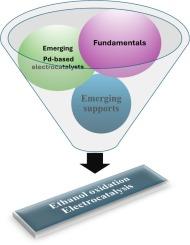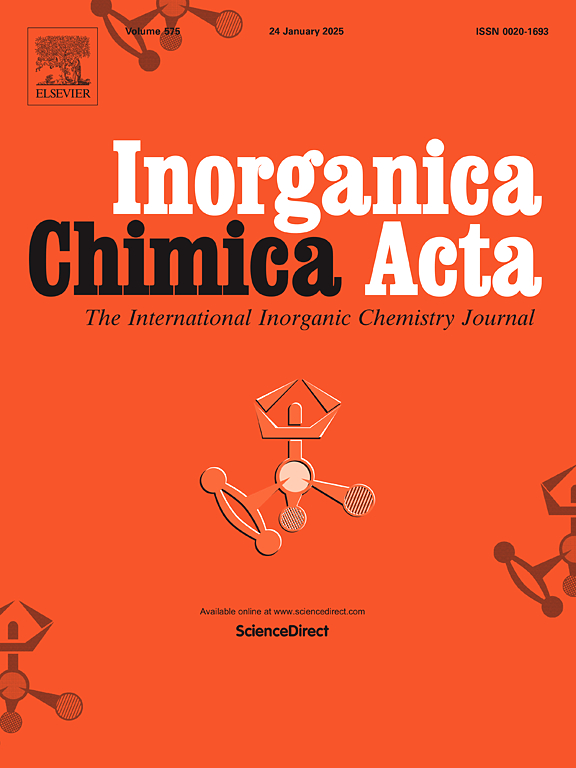Emerging Pd-based electrocatalysts and supports for ethanol oxidation reaction: High-entropy and single-atom materials
IF 3.2
3区 化学
Q2 CHEMISTRY, INORGANIC & NUCLEAR
引用次数: 0
Abstract
Alkaline direct ethanol fuel cells (ADEFCs) offer a promising solution to reduce reliance on fossil fuels. Despite their advantages over hydrogen and methanol fuel cells, the anodic ethanol oxidation reaction (EOR) in ADEFCs faces challenges such as sluggish kinetics and high overpotentials, leading to reduced efficiency. To address these issues, highly active electrocatalysts are essential. This review highlights recent advancements in Pd-based high-entropy materials (HEMs) and single-atom catalysts (SACs) for EOR. Additionally, MXenes, a novel family of two-dimensional materials, have shown promise as supports for these electrocatalysts. We discuss the fundamental principles of EOR, the unique properties of these emerging materials, and their applications in EOR electrocatalysis. Finally, we provide an outlook on future research directions to enhance the commercialization of Pd-based electrocatalysts for ADEFC technologies.

用于乙醇氧化反应的新兴钯基电催化剂和支持物:高熵和单原子材料
碱性直接乙醇燃料电池(ADEFCs)为减少对化石燃料的依赖提供了一种前景广阔的解决方案。尽管与氢燃料电池和甲醇燃料电池相比,ADEFCs 中的阳极乙醇氧化反应(EOR)具有优势,但也面临着一些挑战,如动力学缓慢和过电位高,从而导致效率降低。要解决这些问题,高活性电催化剂必不可少。本综述重点介绍了用于 EOR 的钯基高熵材料 (HEM) 和单原子催化剂 (SAC) 的最新进展。此外,新型二维材料系列 MXenes 已显示出作为这些电催化剂载体的前景。我们将讨论 EOR 的基本原理、这些新兴材料的独特性质及其在 EOR 电催化中的应用。最后,我们对未来的研究方向进行了展望,以促进用于 ADEFC 技术的钯基电催化剂的商业化。
本文章由计算机程序翻译,如有差异,请以英文原文为准。
求助全文
约1分钟内获得全文
求助全文
来源期刊

Inorganica Chimica Acta
化学-无机化学与核化学
CiteScore
6.00
自引率
3.60%
发文量
440
审稿时长
35 days
期刊介绍:
Inorganica Chimica Acta is an established international forum for all aspects of advanced Inorganic Chemistry. Original papers of high scientific level and interest are published in the form of Articles and Reviews.
Topics covered include:
• chemistry of the main group elements and the d- and f-block metals, including the synthesis, characterization and reactivity of coordination, organometallic, biomimetic, supramolecular coordination compounds, including associated computational studies;
• synthesis, physico-chemical properties, applications of molecule-based nano-scaled clusters and nanomaterials designed using the principles of coordination chemistry, as well as coordination polymers (CPs), metal-organic frameworks (MOFs), metal-organic polyhedra (MPOs);
• reaction mechanisms and physico-chemical investigations computational studies of metalloenzymes and their models;
• applications of inorganic compounds, metallodrugs and molecule-based materials.
Papers composed primarily of structural reports will typically not be considered for publication.
 求助内容:
求助内容: 应助结果提醒方式:
应助结果提醒方式:


